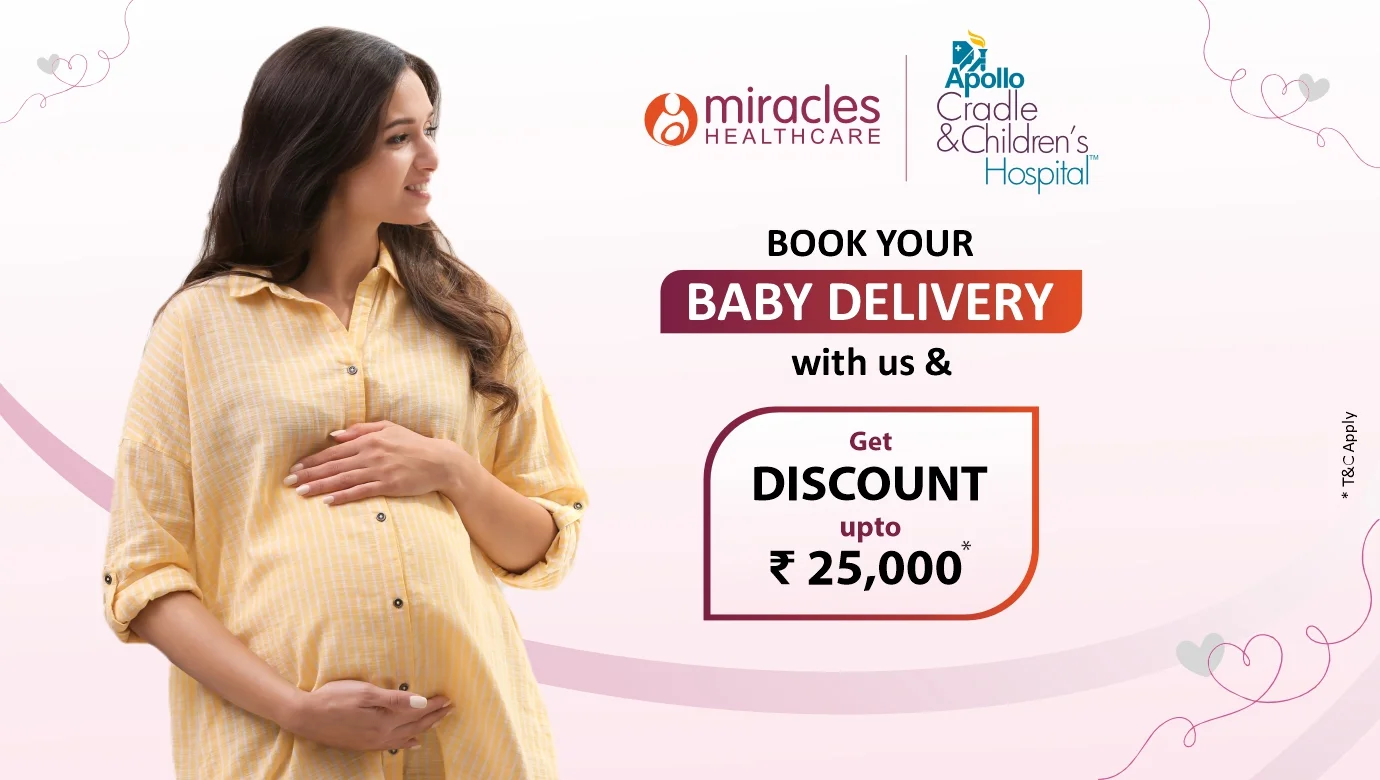Gynaecology Conditions We Treat
Comprehensive Care for Your Health

Uterine fibroids are a common type of noncancerous growth in or on the wall of the uterus. Some fibroids cause symptoms including heavy menstrual bleeding, back pain, frequent urination, pain during sex, and more. The treatment of Uterine Fibroids depends on the size and severity. Generally, small-size fibroids don't require any treatment and on the other hand, large-size fibroids can be treated with medications or surgery.
Uterine fibroids are also known as leiomyomas or myomas. They are the most common type of noncancerous(benign) tumors in women that develop in or on the walls of the uterus at reproductive age and affect up to 70% of women by age 50.
Uterine Fibroids are classified according to their location within the uterus.
Subserosal fibroids: Grow on the outer surface of the uterus.
Intramural fibroids: Grow within the muscular wall of the uterus.
Submucosal fibroids: Grow into the uterine cavity, the space inside the uterus.
Pedunculated fibroids: Attach to the uterus with a stem.
Heavy menstrual bleeding or painful periods
Painful sex
Low back pain
Bloating or swelling in the abdomen
More frequent or longer periods
Infertility or difficulty getting pregnant
Constipation
Feeling pressure on the rectum
Long-term vaginal discharge
It is important to note that after menopause, the symptoms of uterine fibroids go away because of a decline in hormone levels.
The exact causes of uterine fibroids are unknown, but they are believed to be influenced by genetics, hormones, and environmental factors.
Estrogen and progesterone, the primary female sex hormones, are thought to play a crucial role in the growth of uterine fibroids. These growths tend to increase in size with elevated hormone levels and shrink when hormonal levels decrease.
Genetics also plays a role, as women with a family history of uterine fibroids have a higher likelihood of developing them.
Additionally, certain environmental factors may contribute, with some studies suggesting that exposure to specific toxins could increase the risk of uterine fibroid development.
Physical Examination: A pelvic examination is generally conducted to diagnose uterine fibroids.
Ultrasound: This is the most common diagnostic test for uterine fibroids. Pelvic ultrasound utilizes sound waves to generate images of the uterus's internal structure, providing information about the size, location, and number of fibroids.
Hysterosonography (HSG): This test involves X-rays to create images of the uterus and fallopian tubes. A contrast dye is injected into the uterine cavity, enabling the detection of submucosal fibroids within the uterine cavity.
Computed Tomography (CT) Scan: CT scans use X-ray images to produce detailed views of internal organs from multiple angles.
Magnetic Resonance Imaging (MRI): MRI scans use magnetic fields and radio waves to create detailed images of the uterus, assisting in the diagnosis of large or deep-seated fibroids.
Hysteroscopy: During this procedure, a gynecologist inserts a thin, flexible tube with a camera through the vagina and cervix into the uterus to visually inspect fibroids inside the uterus.
Sonohysterography: This imaging procedure involves placing a small catheter in the vagina and injecting saline into the uterus to enhance imaging and obtain a clearer view.
Laparoscopy: In this procedure, a small incision is made in the lower abdomen, and a thin, flexible tube with a camera is inserted to closely examine internal organs.
Additionally, blood tests may be ordered to check for anemia caused by heavy menstrual bleeding from uterine fibroids in some cases.
The treatment procedure for uterine fibroids depends on factors such as size, location, number, and associated symptoms. Here is an overview:
Regular Checkups: If uterine fibroids are small and asymptomatic, regular checkups may be recommended to monitor any changes.
Medications:
Over-the-counter (OTC) Pain Medications: To manage pain and discomfort, acetaminophen and ibuprofen can be used.
Iron Supplements: Iron supplements may be prescribed to manage anemia resulting from excessive bleeding.
Gonadotropin-releasing hormone (GnRH) Agonists: These medications suppress estrogen and progesterone production, leading to fibroid shrinkage.
Birth Control Options: Various contraceptives, such as pills, rings, injections, and intrauterine devices (IUDs), can help manage fibroid symptoms.
Minimally Invasive Procedures:
Uterine Artery Embolization (UAE): This procedure blocks blood supply to the fibroids, causing them to shrink.
Myomectomy: Surgically removing the fibroids is an option for treatment.
Surgery: For larger fibroids causing significant symptoms, surgery may be recommended. The type of surgery depends on the fibroids' size, location, and number.
Individuals need to consult their gynecologist to determine the most appropriate treatment based on their specific circumstances.
There is no way to prevent uterine fibroids from developing. However, after consulting with your gynecologist, there are measures you can take to potentially reduce the risk, such as maintaining a healthy weight and engaging in regular exercise.
Several risk factors increase the chance of developing uterine fibroids including:
Family history of uterine fibroids
Obesity
Consumption of food additives
Early beginning of menstruation
The treatment cost of uterine fibroids can vary based on several factors, including the severity of the problem, fibroid location, treatment type, surgeon's experience, hospital reputation, location, and insurance coverage. For an accurate cost estimate tailored to your condition, consulting with fibroid removal surgery doctors is crucial.
Miracles Apollo Cradle is renowned as the best gynecological hospital in Gurgaon, offering a comprehensive range of services including uterine fibroid treatments tailored to each patient's individual needs. Our team of highly experienced and compassionate gynecologists is dedicated to providing personalized care, ensuring you receive the best possible treatment options and support throughout your journey. We provide advanced treatment options for uterine fibroids, including minimally invasive procedures like uterine fibroid embolization (UFE) and myomectomy, as well as surgical options for more complex cases. Our state-of-the-art facilities are equipped with the latest technology to ensure the highest standards of care and comfort for our patients.
Miracles Healthcare offers comprehensive healthcare services through multiple facilities: Miracles Apollo Cradle, Miracles Apollo Cradle/Spectra, Miracles Fertility & IVF Clinic, and Miracles Mediclinic. Our facilities are located in Sec 14, Sec 56, and Sec 82, making daily healthcare more convenient for the people of Gurgaon.
If you are experiencing symptoms of uterine fibroids, don't hesitate to reach out to us. Schedule a consultation today with the best Fibroid Removal Surgery Doctors in Gurgaon and take the first step towards a fibroid-free life.


Comprehensive Care for Your Health
Meet our expert team of Gynaecologist where compassionate care meets expertise.
Inspiring Journeys: True Patient Stories
Miracles Apollo Cradle is a leading Maternity Hospital Gurgaon. We strive to give the best care to our patients.






Learn about the world class health care we provide
Source for Expert Advice and Health Tips
Learn about the world class health care we provide
Endometrial polyps are formed from the lining of the uterus and therefore only occur within the uterine cavity. Fibroids come from the uterine musculature and may occur on any part of the uterus's interior, exterior, or uterine wall.
The cost of uterine fibroid treatment in Gurgaon varies depending on factors such as fibroid severity, chosen treatment method, hospital, and insurance coverage. As a leading hospital, Miracles Apollo Cradle offers a range of affordable treatments for uterine fibroids in Gurgaon.
Treatment is only needed if fibroids cause severe symptoms or complications; otherwise, they may not require intervention.
Yes, many women live with fibroids without issues, especially if they are small and asymptomatic.
Yes, uterine fibroids can be effectively treated to manage symptoms and prevent complications. Treatment options vary based on factors such as fibroid size, location, number, the woman's symptoms, and fertility goals.
Fibroids can cause heavy periods, pelvic pain, and sometimes pressure on the bladder or bowel, but many women experience no symptoms.
The exact cause is unclear, but factors like hormones (estrogen and progesterone) and genetics may play a role.